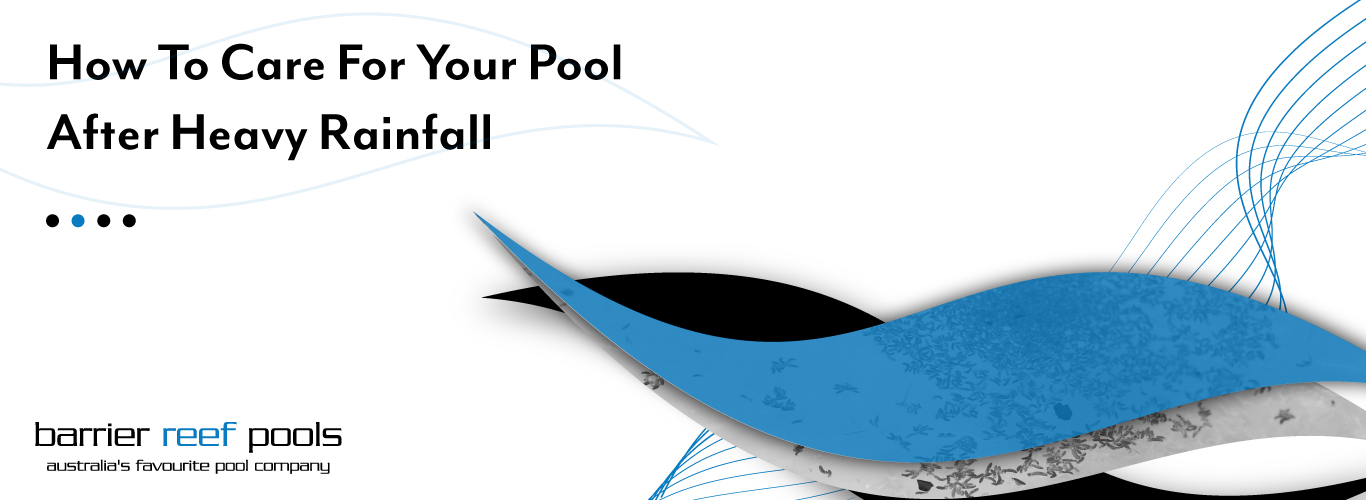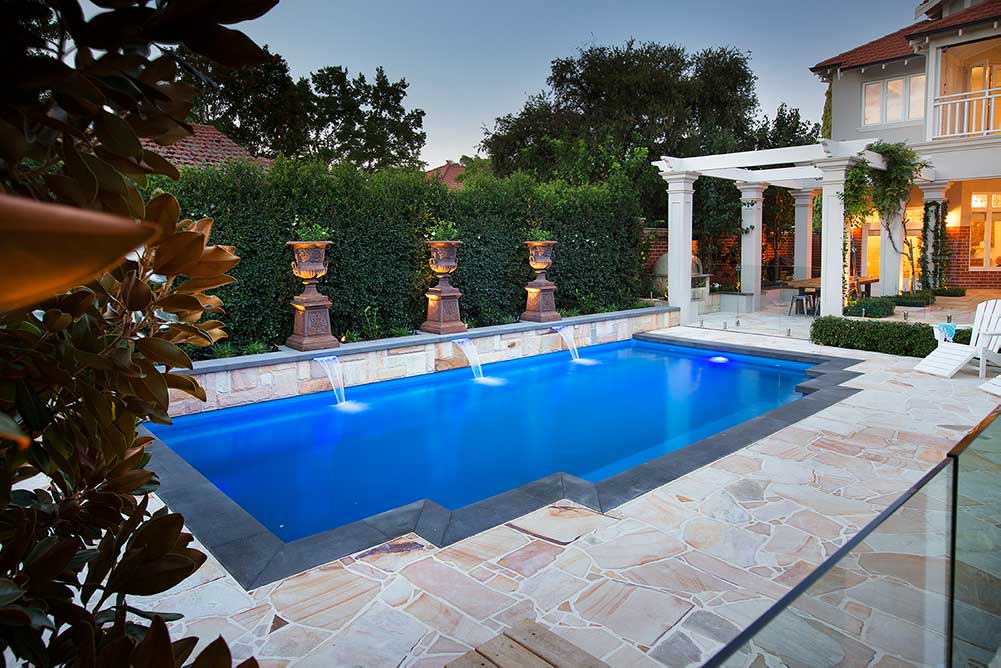How To Care For Your Pool After Heavy Rainfall
Understanding how to properly clean your pool after a period of heavy rainfall can save you a tremendous amount of time and stress. This is particularly so during Australia’s tropical wet season when all manner of wild weather can hit your pool.
But why does heavy rainfall mean you have to clean your pool differently than normal in the first place? Well, heavy rainfall can deposit a large quantity of organic debris in your pool, drastically affect your water’s Ph level, and corrode key equipment. All of these can negatively affect the health and lifespan of your pool if left unchecked for too long. Read on to discover our 5 recommendations for post-rainfall care of your fibreglass pool.

When It Comes To Rain, Prevention Is Better Than A Cure
Let’s face it: if your pool endures heavy rainfall and/or a tropical storm, it’s more than likely you’re going to have a big clean-up job ahead of you. But this doesn’t always have to be the case.
The proper amount of preparation can fortify your fibreglass pool against the worst that heavy rainfall has to offer. Long story short, this means less clean-up work for you after the rain hits and – more importantly – less damage to your pool.
But how can you prepare against the weather? Well, if you’re in the rainy season, our experts suggest you keep a close eye on the bureau of meteorology from the Australian government. Although it is not entirely accurate (weather predictions rarely are) it will more often than not allow you to prepare your pool for any large storms that might be on the horizon.
How does preparation help your pool against heavy rain? A pool cover will keep out the majority of organic debris that harsh winds may blow your pool’s way. In addition to this, a pool cover can also keep out much of the rain which in turn could drastically change your pool’s Ph balance. Upping the chemical dosage just before the storm hits may also be an option if you know it will be especially wild.
Steps You Can Take
#1 Remove Any Debris From Your Pool
So, you’ve just had a storm and heavy rainfall hit your pool. What’s next?
Well firstly, you’ll want to get right to skim cleaning your pool free of organic debris, such as:
- Leaves
- Insects
- Loose soil or mud that the rain has flooded into your pool
- Branches that may have come loose during the storm
Leaves may not seem harmful to your pool at first, but in large enough numbers and if left long enough, they can quickly upset the chemical balance in your pool. Leaves can also sink to the bottom of your pool and stain its surface. By skim cleaning any leaves out of your pool, you are one step closer to getting your pool’s health back online.
Next, you’ll want to remove any mud, soil or dirt that has been deposited onto the bottom of your pool by the heavy rain. This is easily done, although a little more time-consuming than skimming.
Vacuuming your pool floor is the answer here. Use your pool vacuum in wide, sweeping strokes to pick up any debris that has sunk to your pool floor. Make sure you cover every inch of your pool floor with your vacuum and don’t be afraid to overlap your sweeps. If your strokes unsettle some of the dirt and the water becomes cloudy, wait 20 – 30 minutes until it settles on the floor of your pool before starting again.

#2 Always Doublecheck The Chemical Balance After Rain
Many pool owners can make the common mistake of thinking that pool water and rainwater are one and the same. Unfortunately, this is not the case, as rainwater will significantly affect your pool water’s chemical balance, potentially upsetting it.
Anytime your pool has sustained heavy rain intake, it is vital that you check its Ph and sanitiser levels. Make any adjustments to the chemical balance that are necessary.
#3 Is Your Water Line Where It Should Be?
This may come across as obvious but in the process of completing the other steps, and dealing with a storm, you’d be forgiven if you forget this: rain puts more water into your pool.
Why is this important to check? Overflowing your pool can have negative consequences on your pump and offset crucial Ph levels. Check the waterline of your pool has not changed, and call a professional if you do need to drain any water.

#4 Make Sure Your Equipment Still Works
As you might have guessed, if heavy rainfall can affect your pool then it can also affect your pool equipment. This extends to skimmers, vacuums, pumps filters and even your pool cover! (They’re pretty amazing but unfortunately not invincible!)
These tools are all crucial in keeping your pool healthy and clean, not just after rainfall but each and every day! So, make sure you check on all your necessary equipment after a storm to see none of it is damaged and replace any that are. Barrier Reef Pools recommends stowing your pool equipment away securely undercover – this will increase the lifespan of your equipment.
One Last Step
And there you have it! A storm or heavy rainfall doesn’t have to mean the end of your pool, nor does it have to mean a huge job of cleaning up if you prepare properly. Now that not even storms can stand in your way, it’s about time you got on to choosing the fibreglass pool you’ve always wanted. Contact Barrier Reef Pools today for your free quote!
